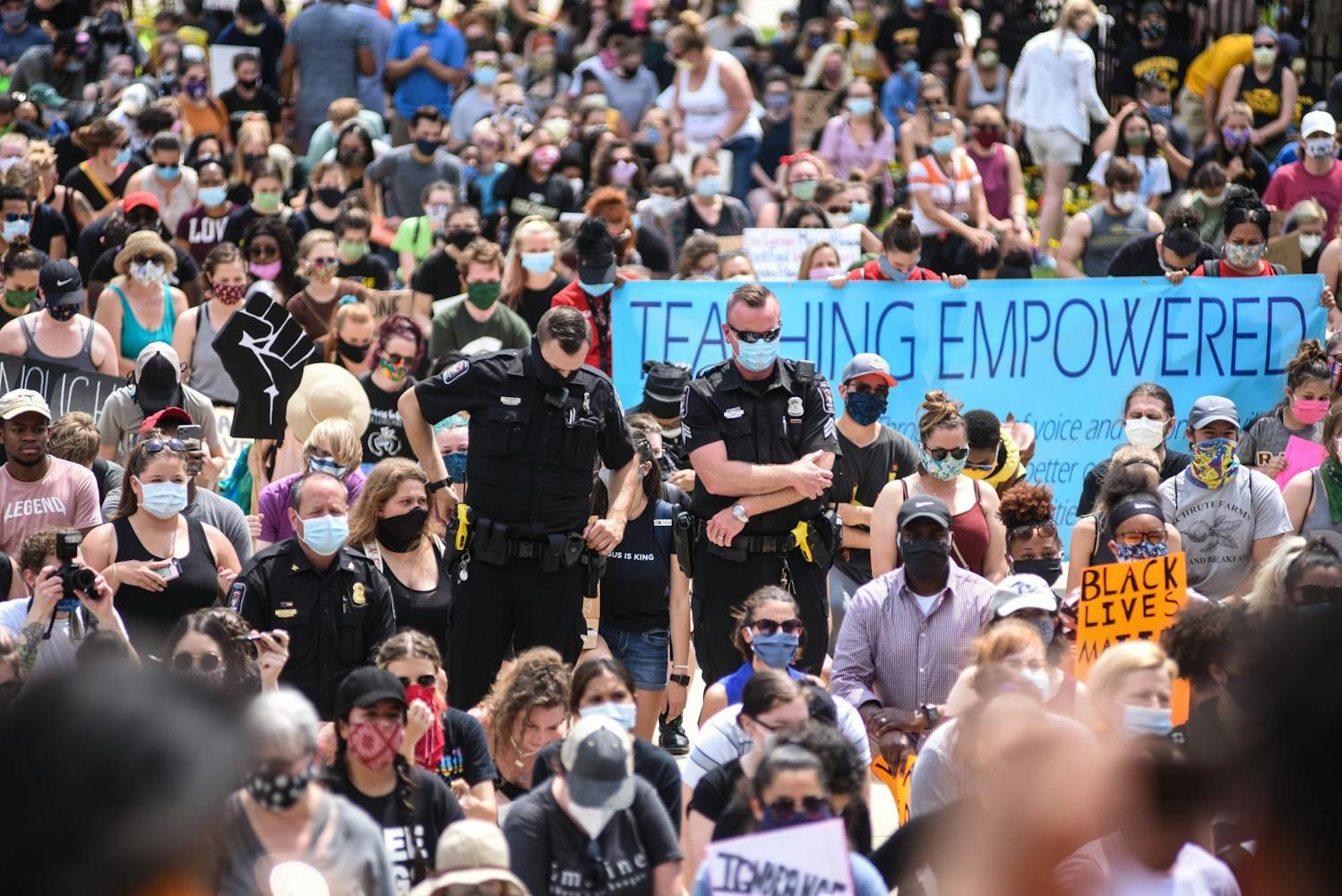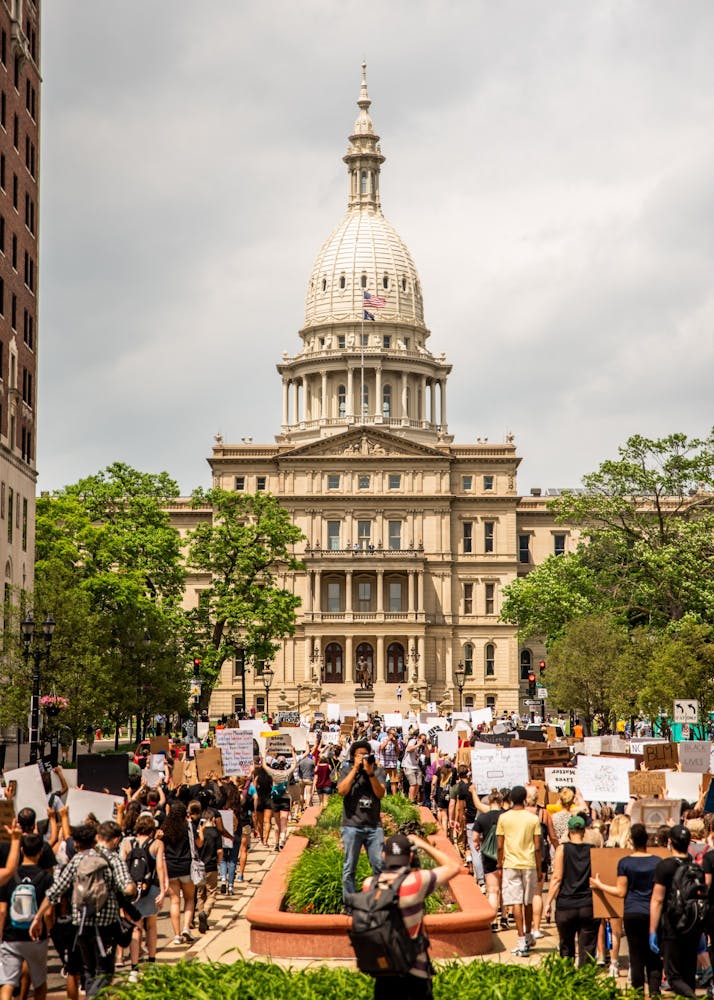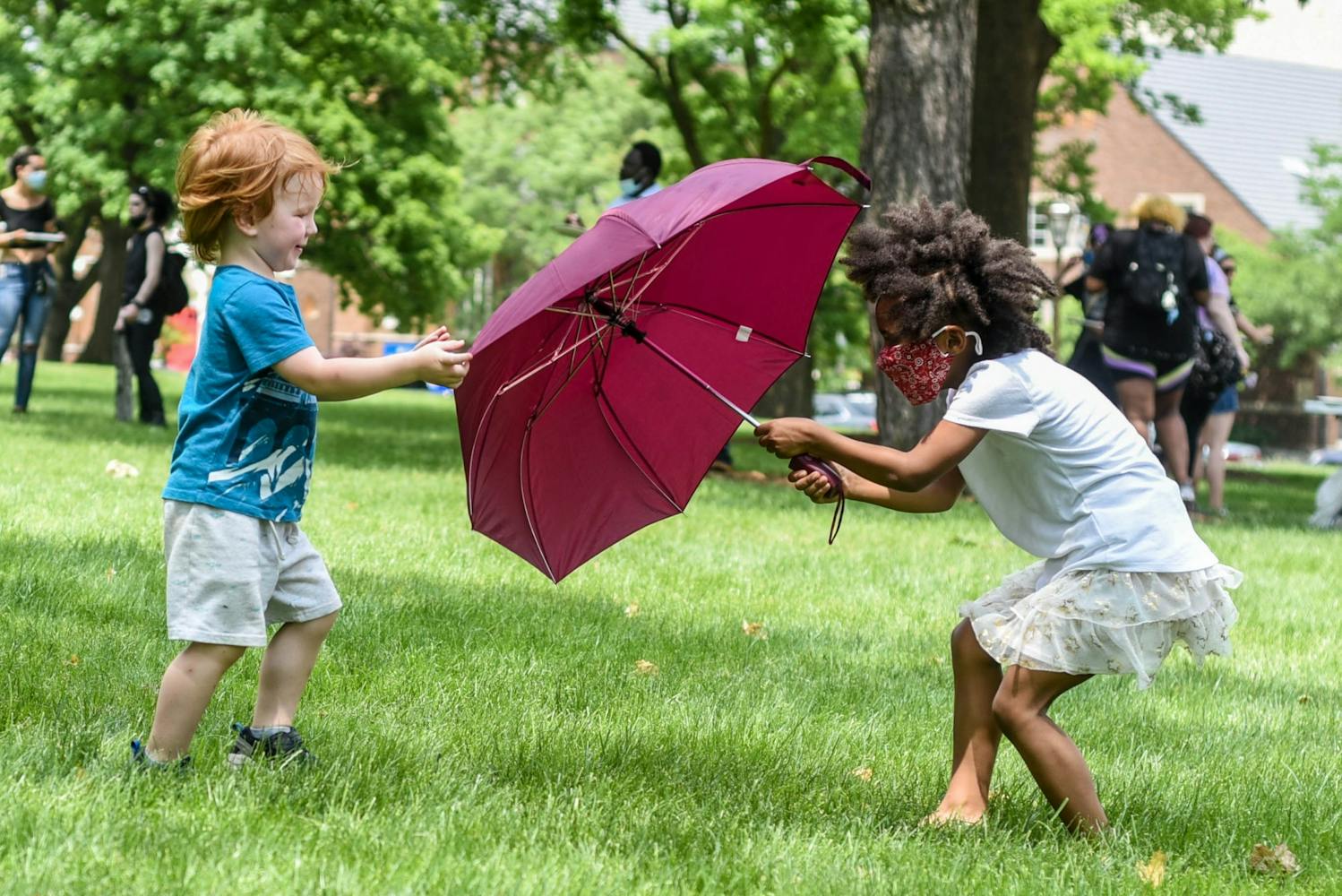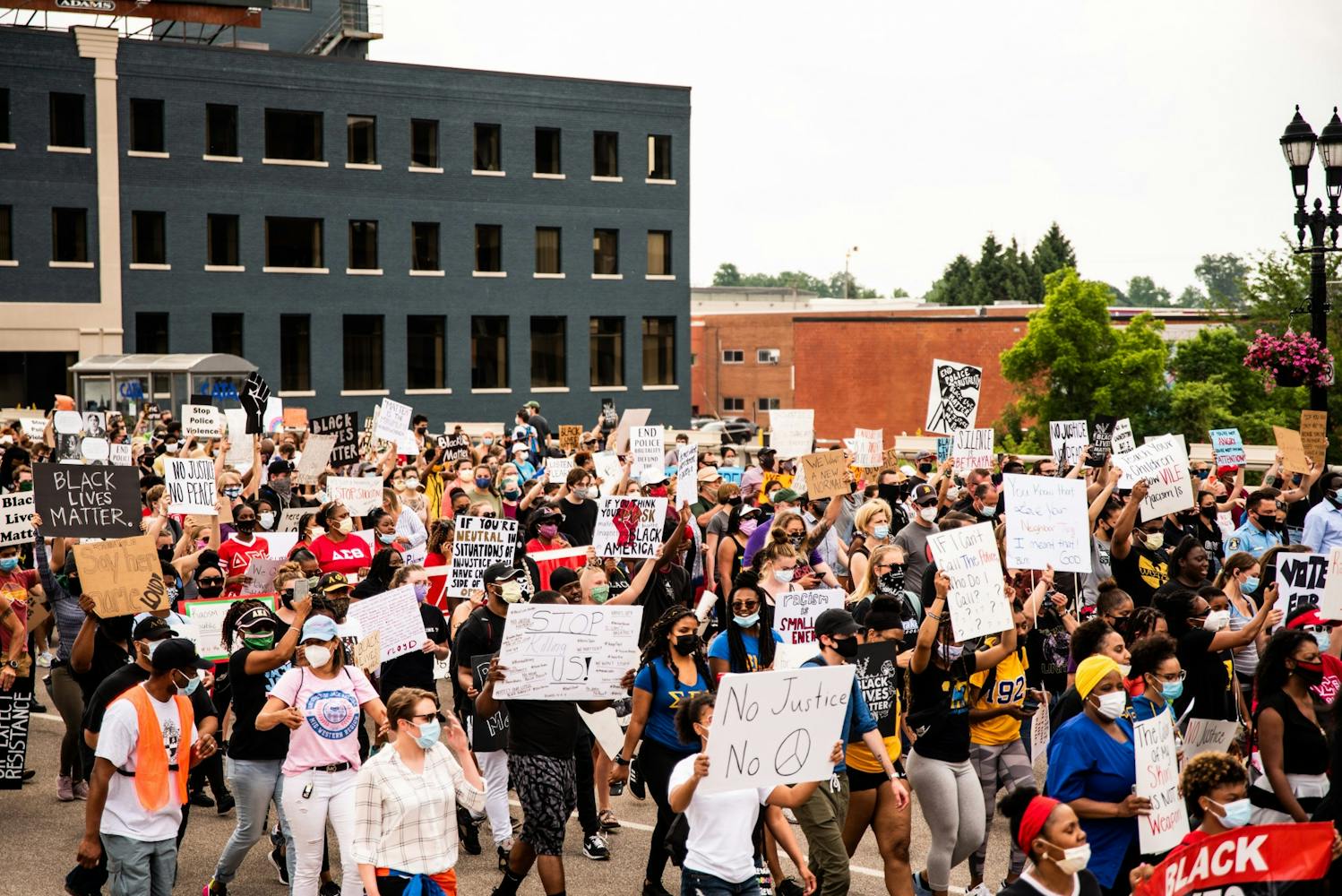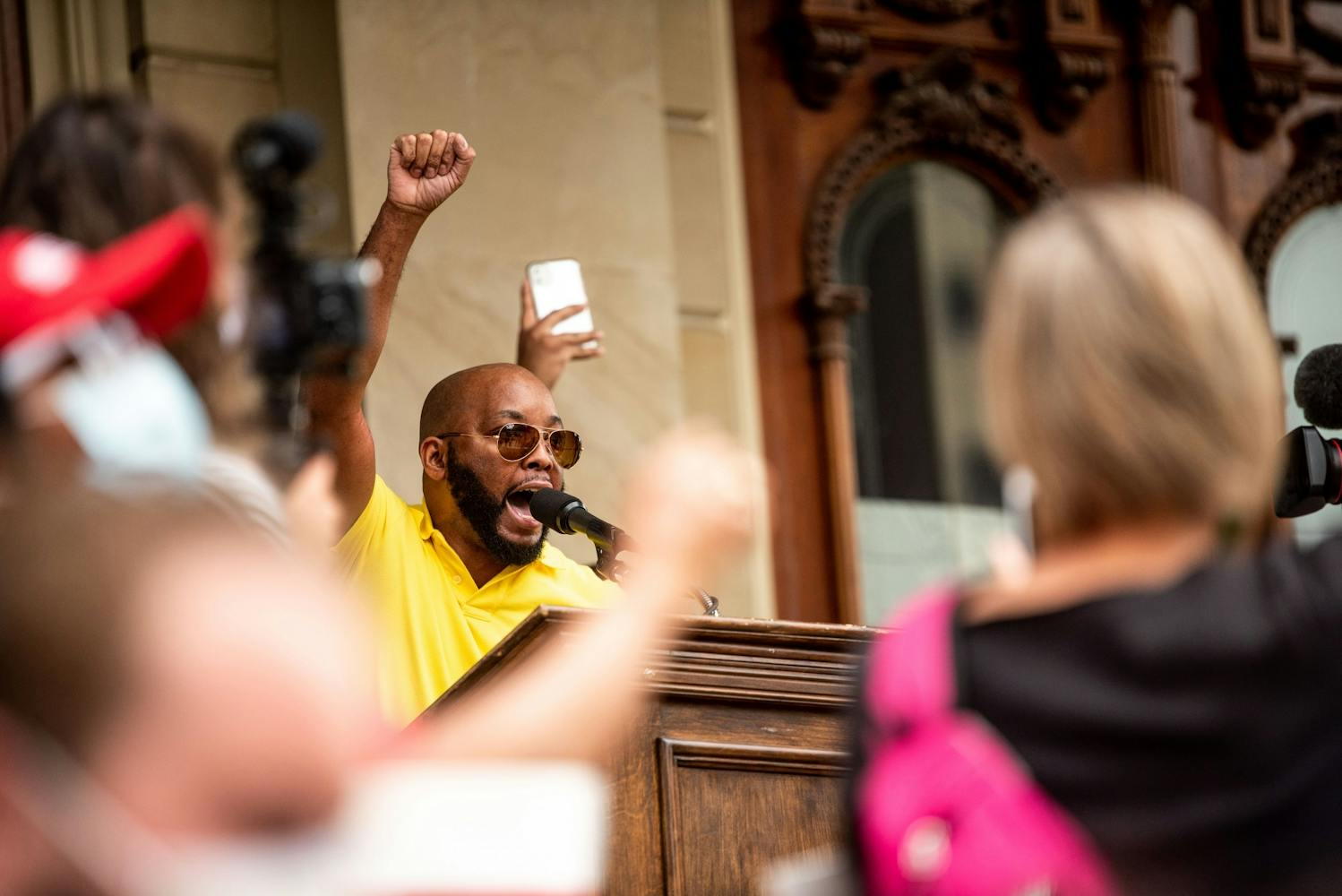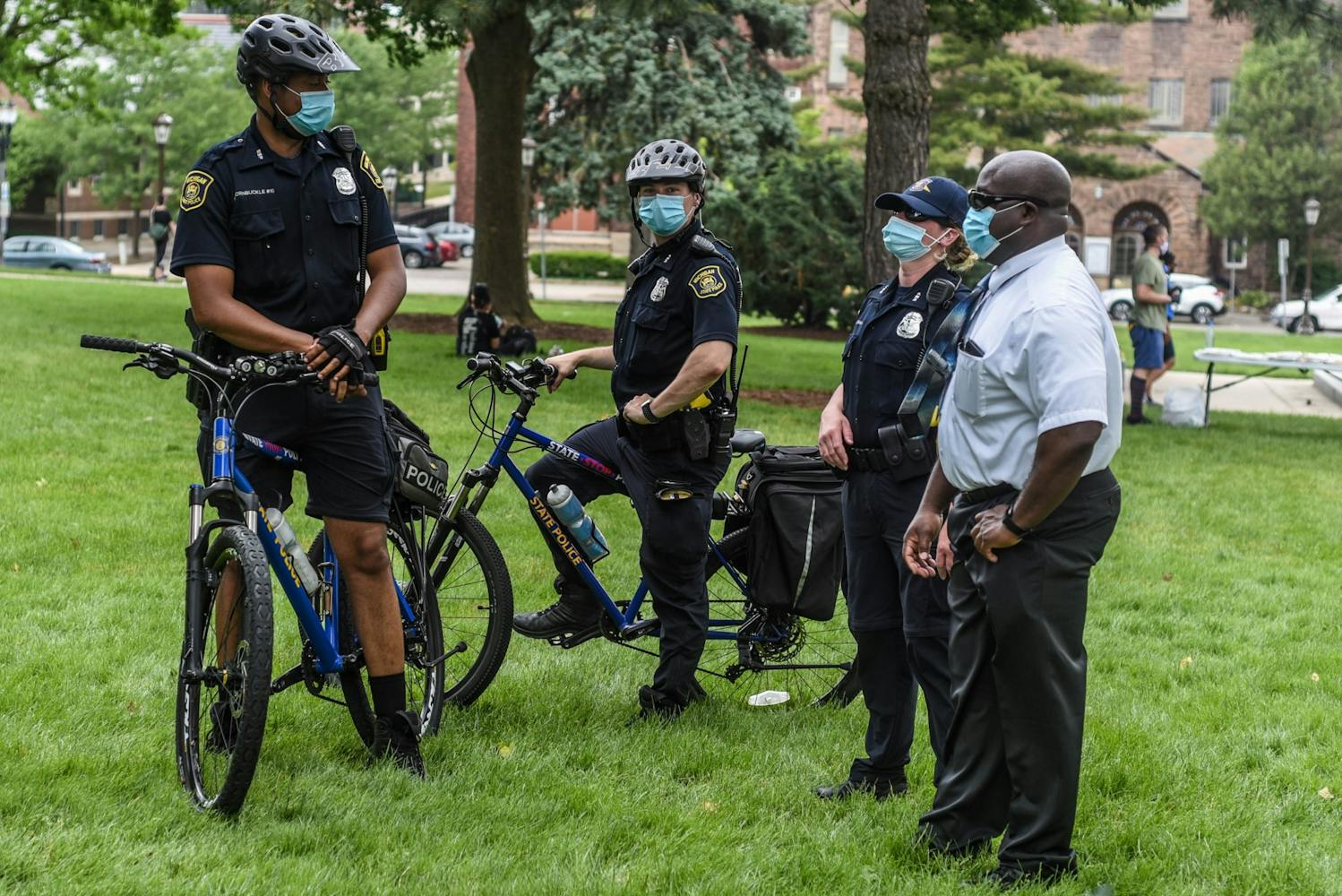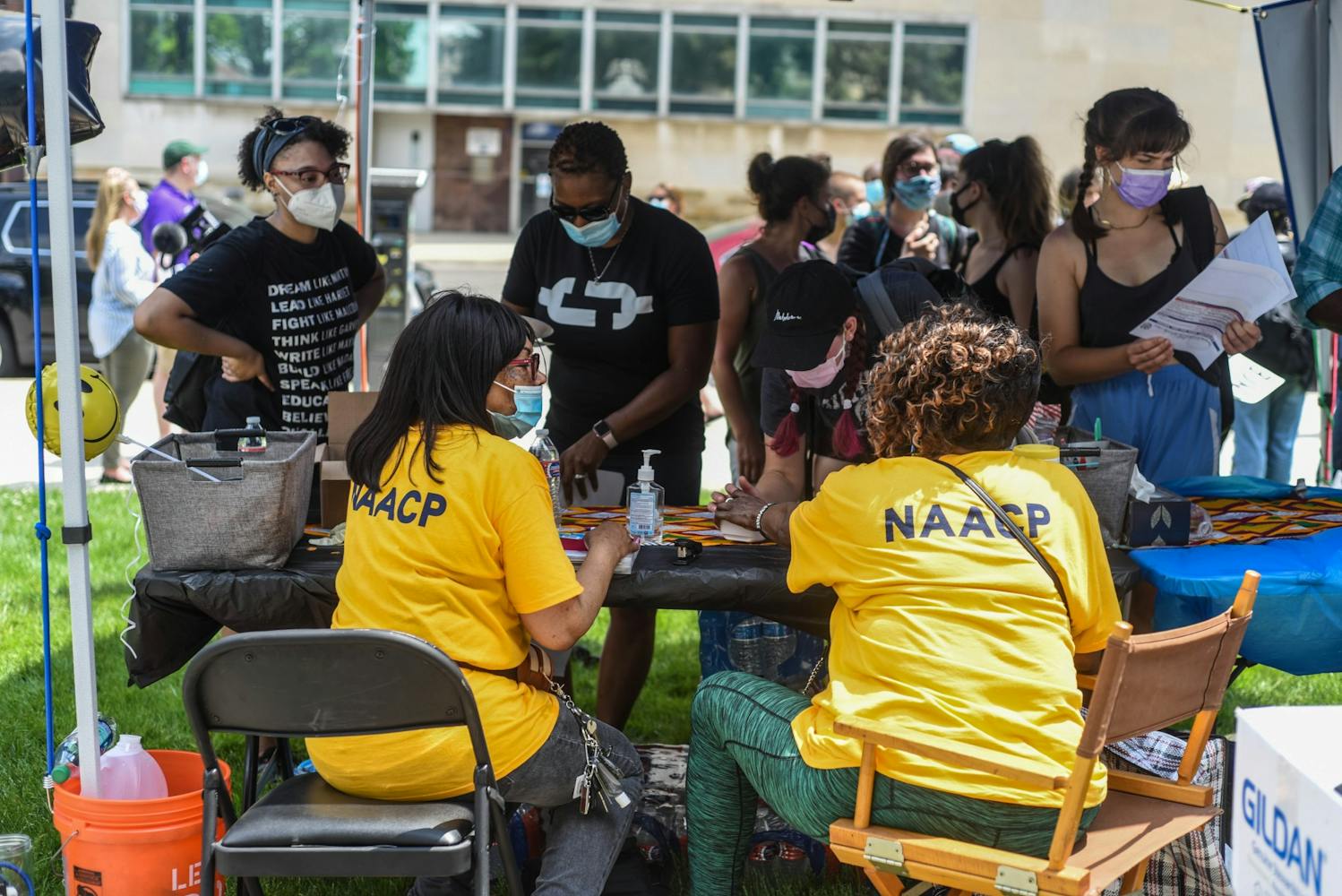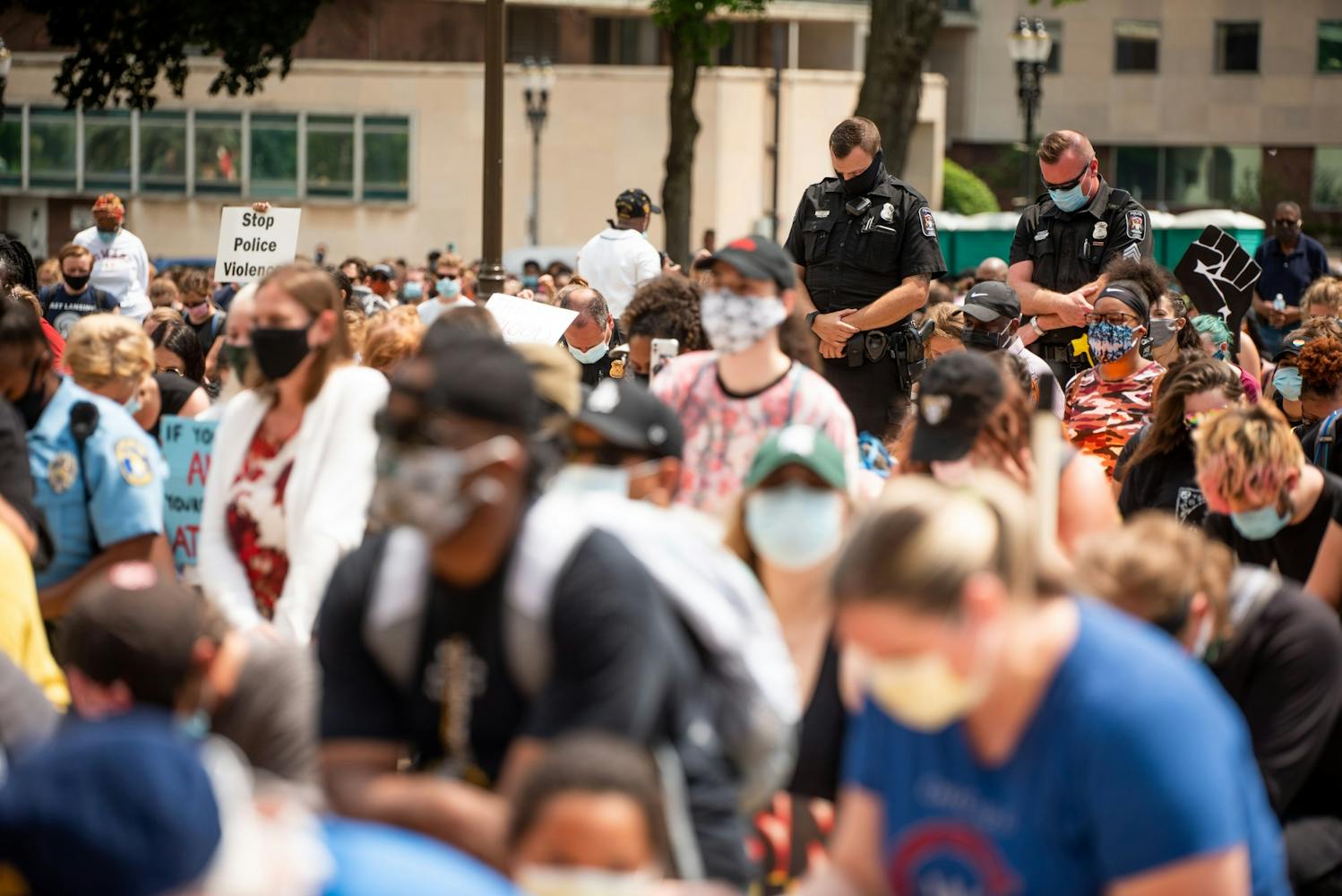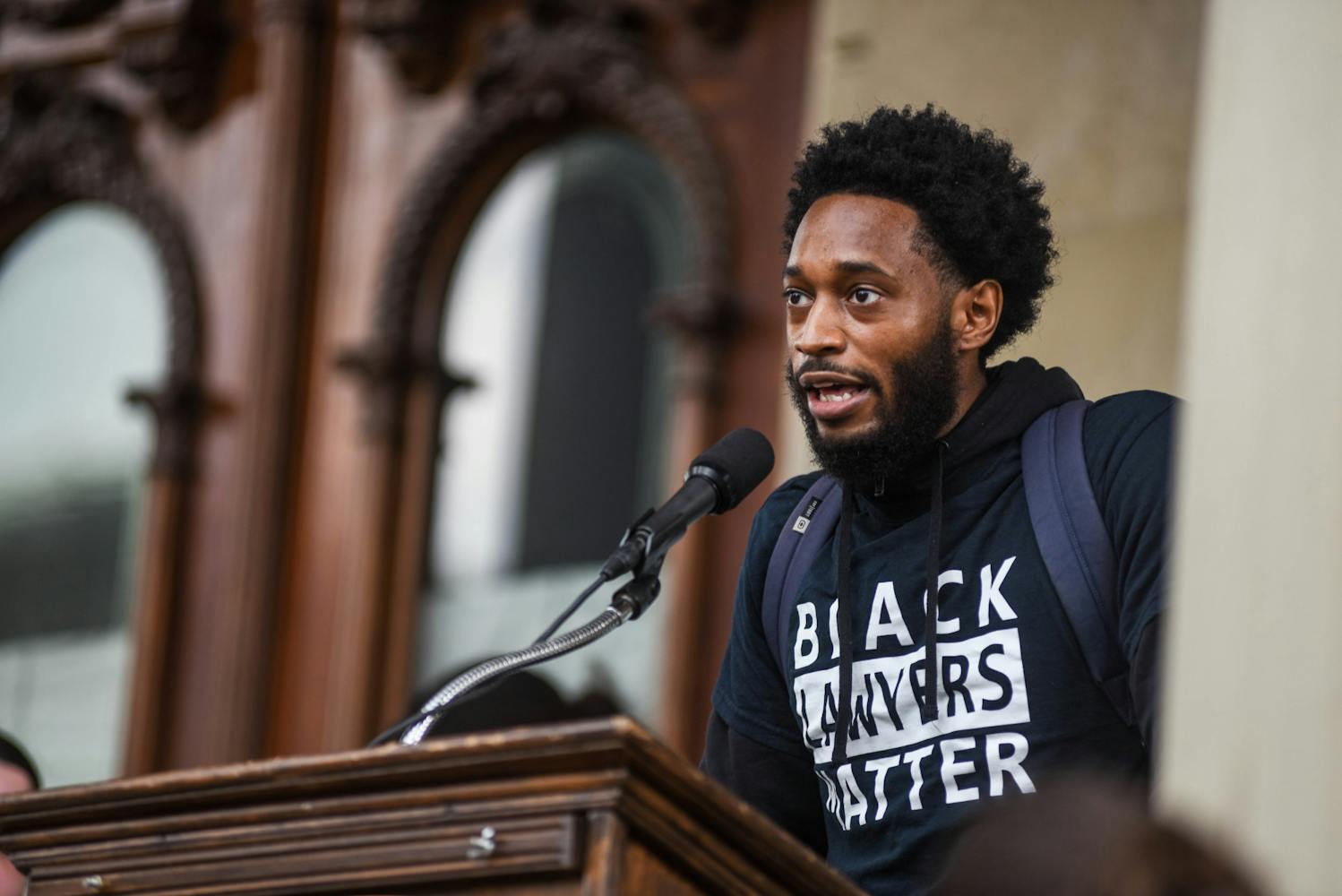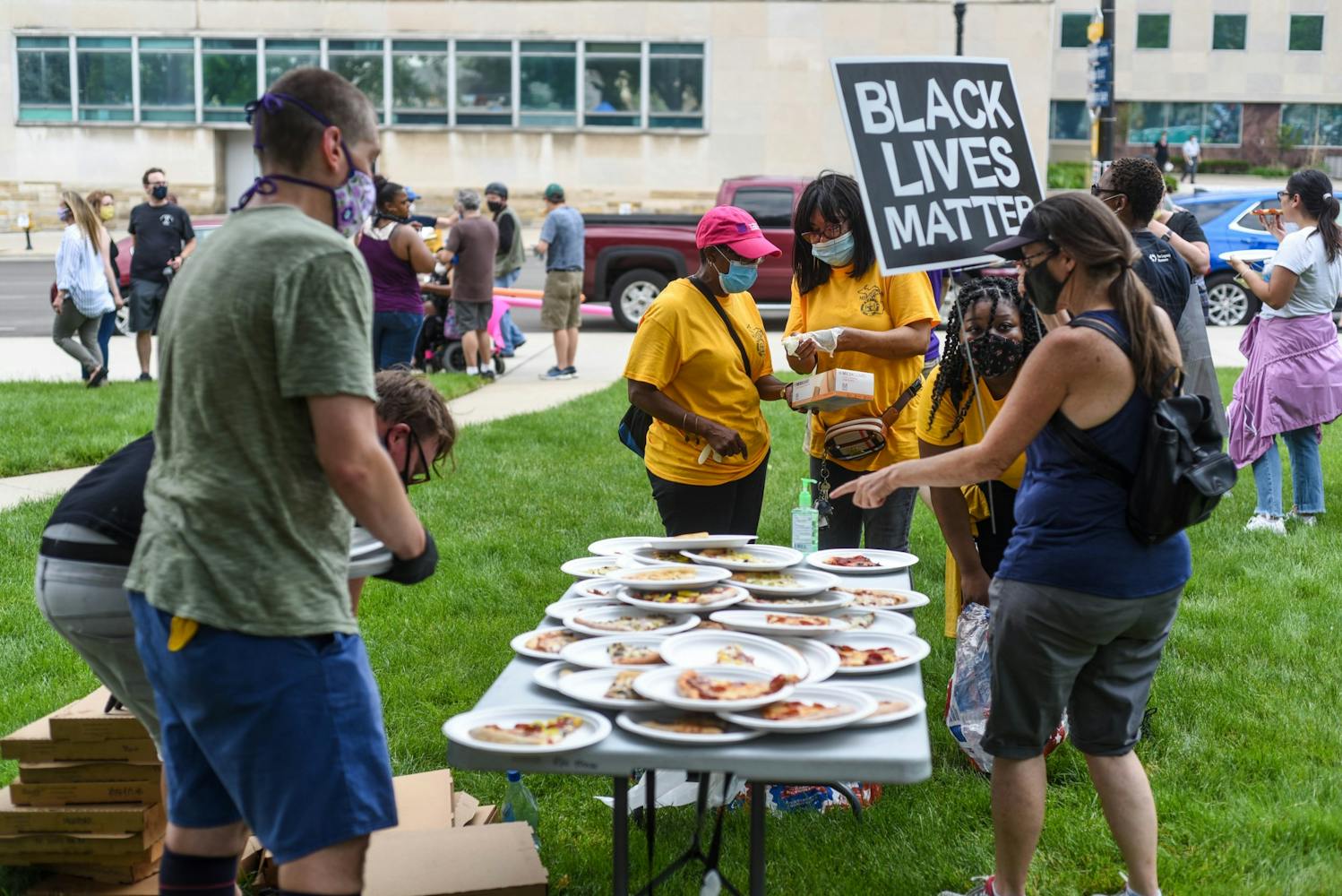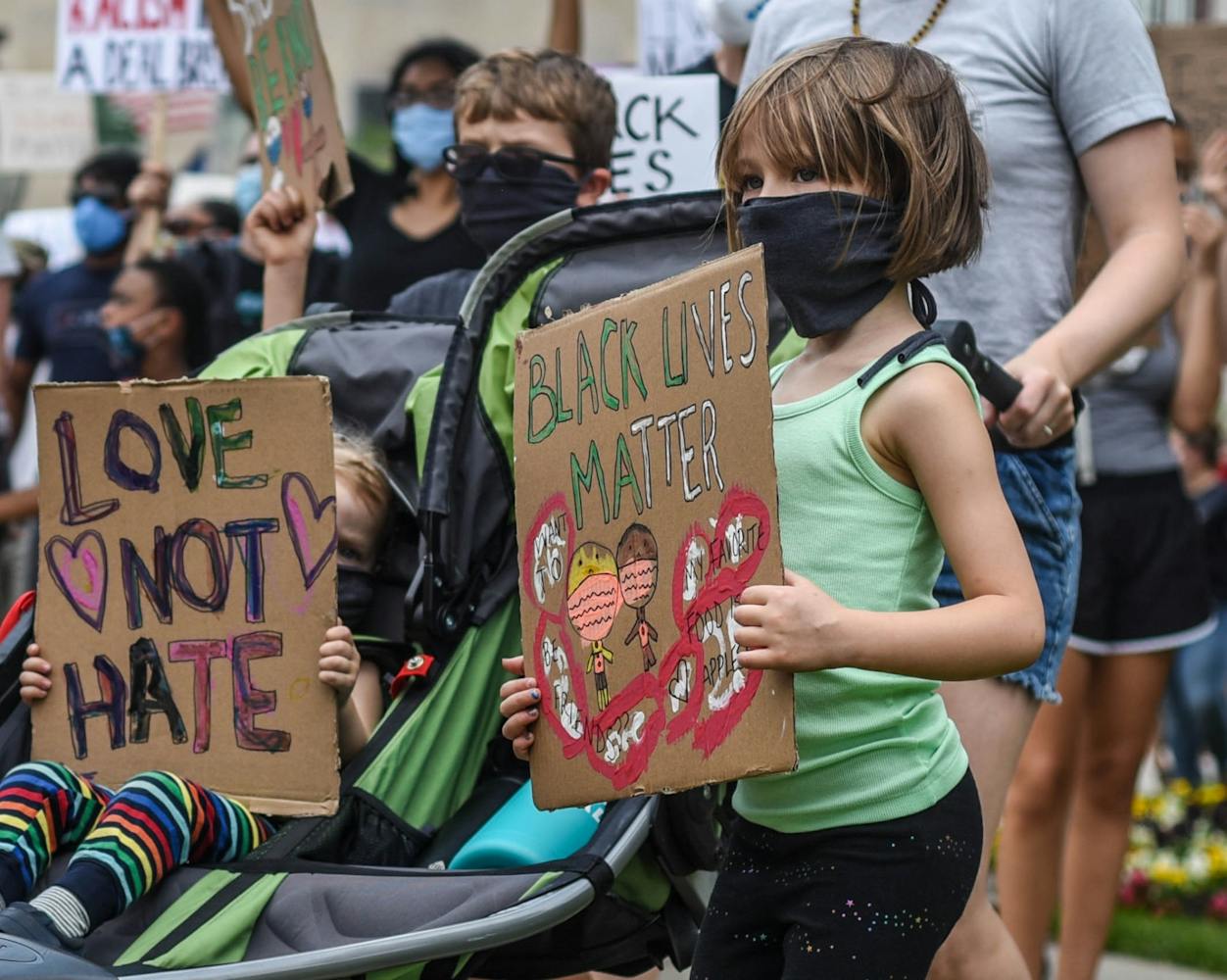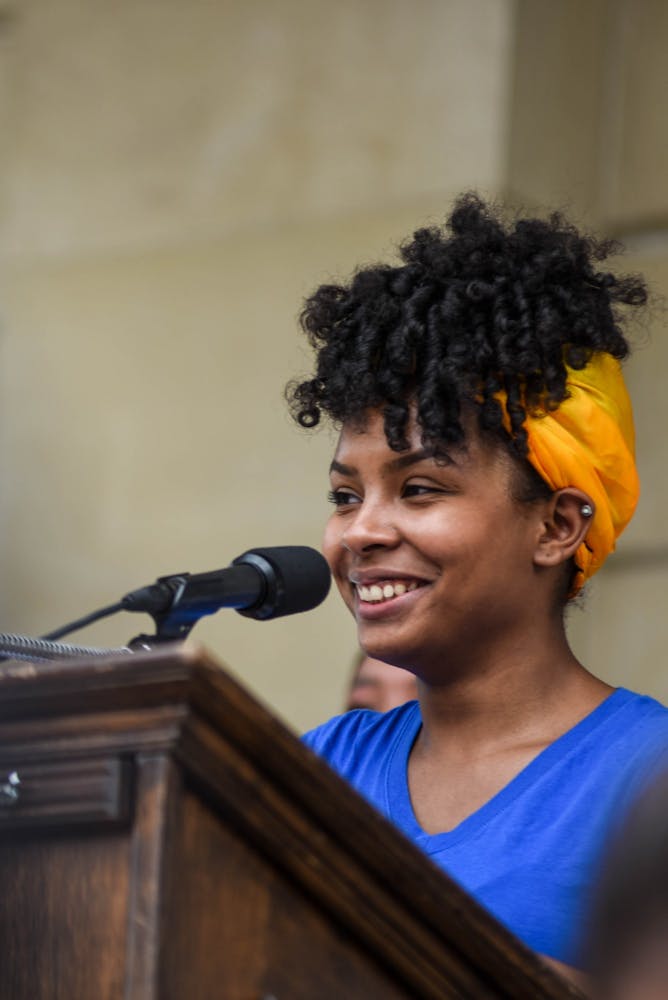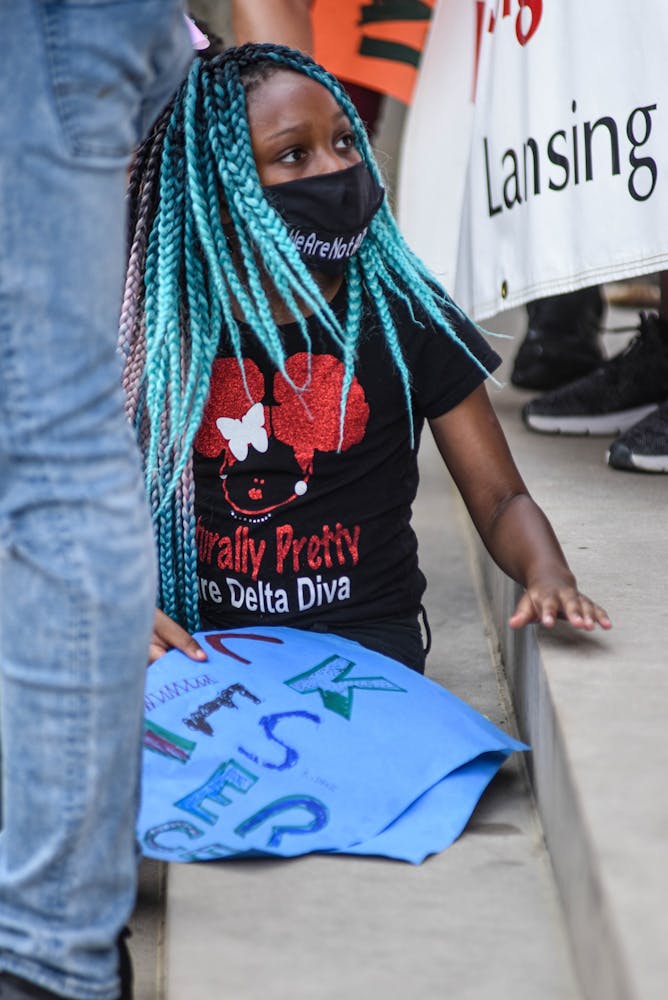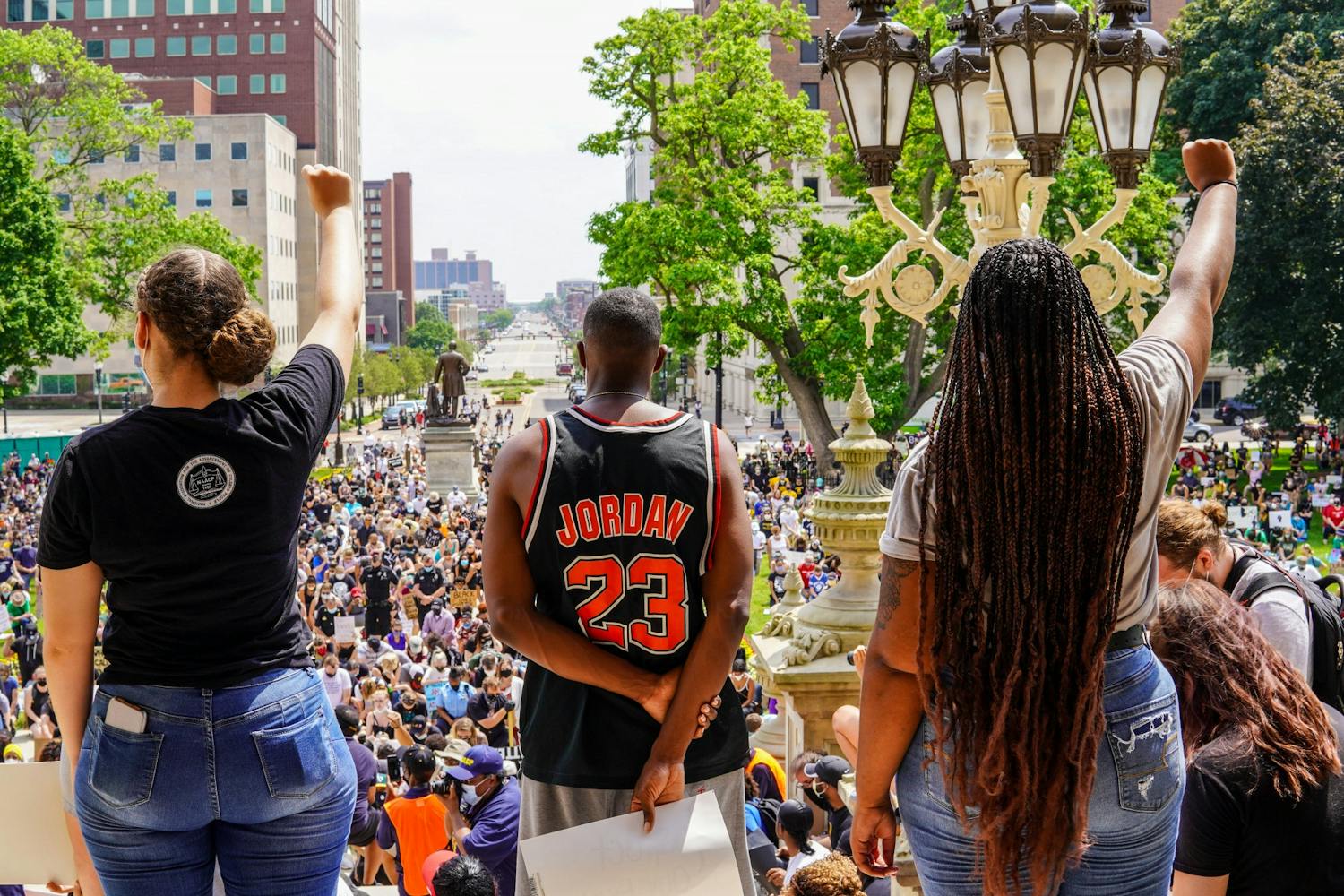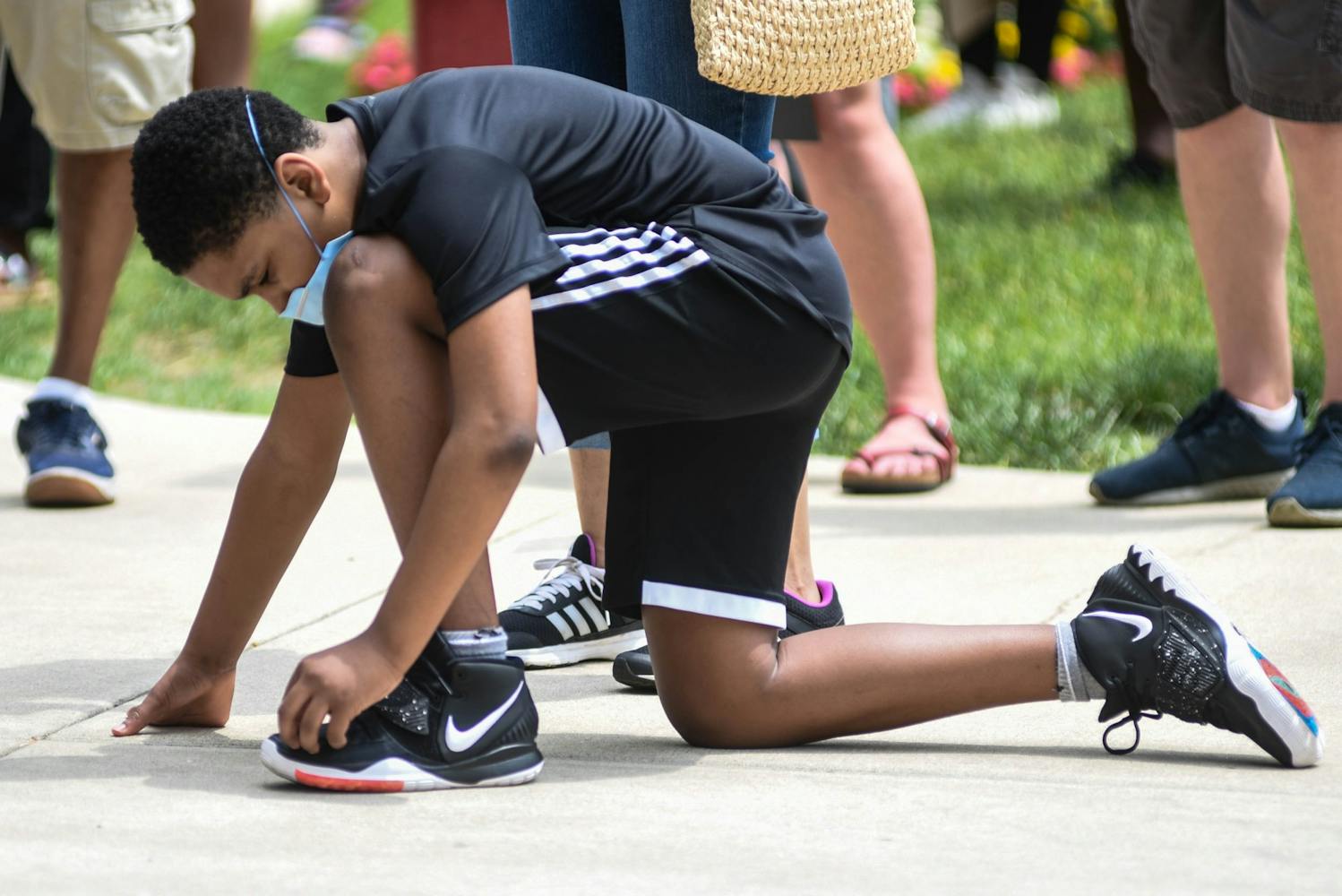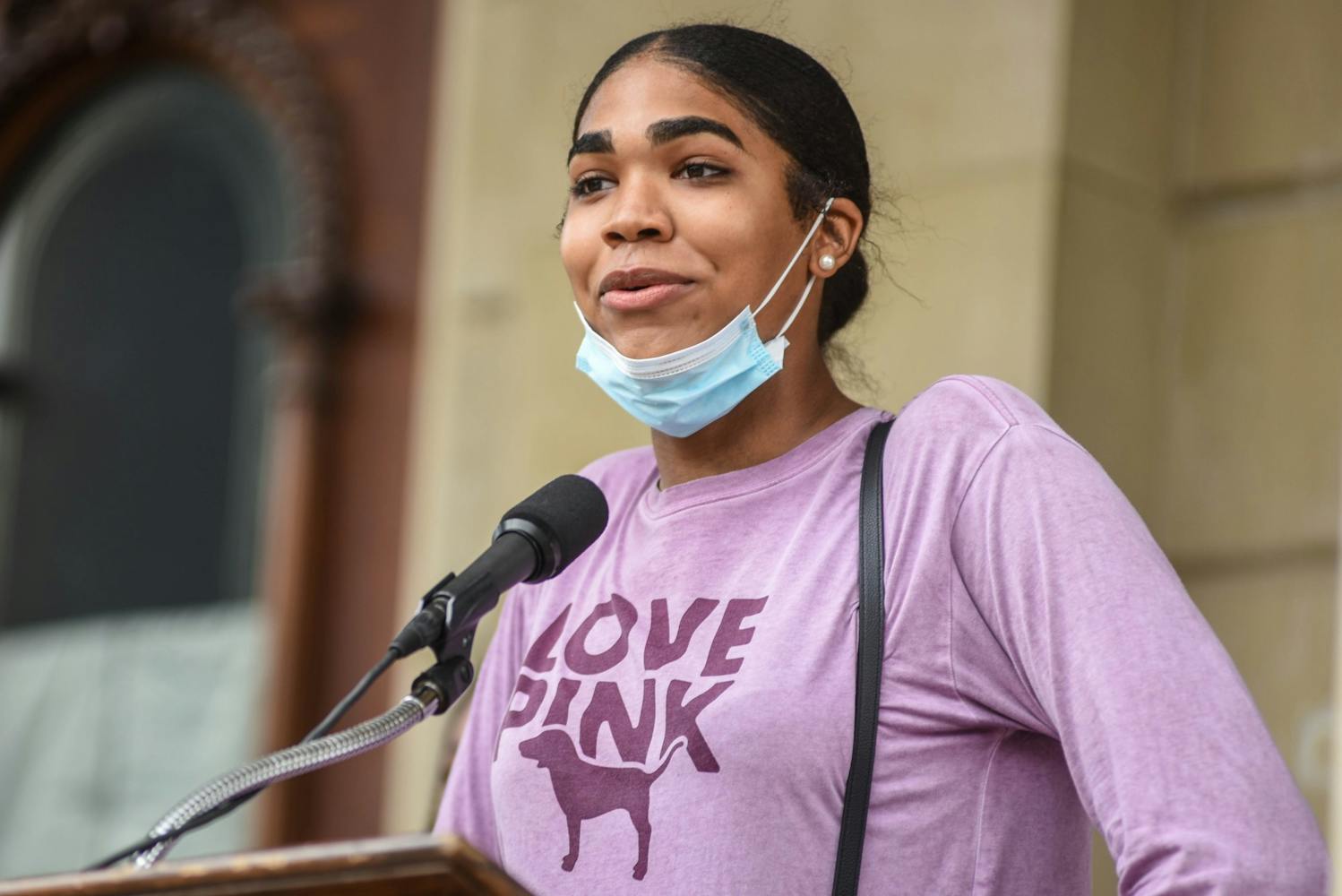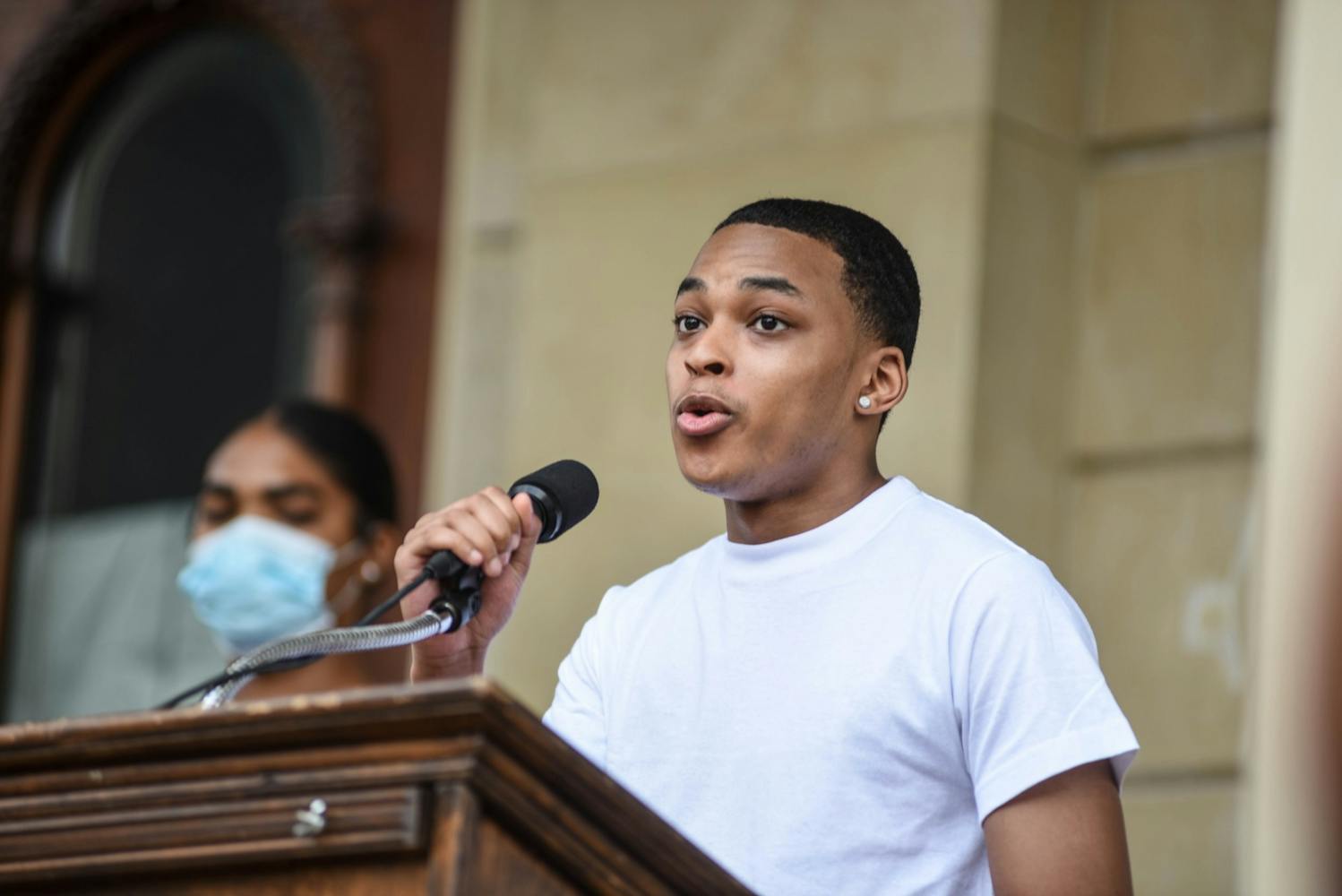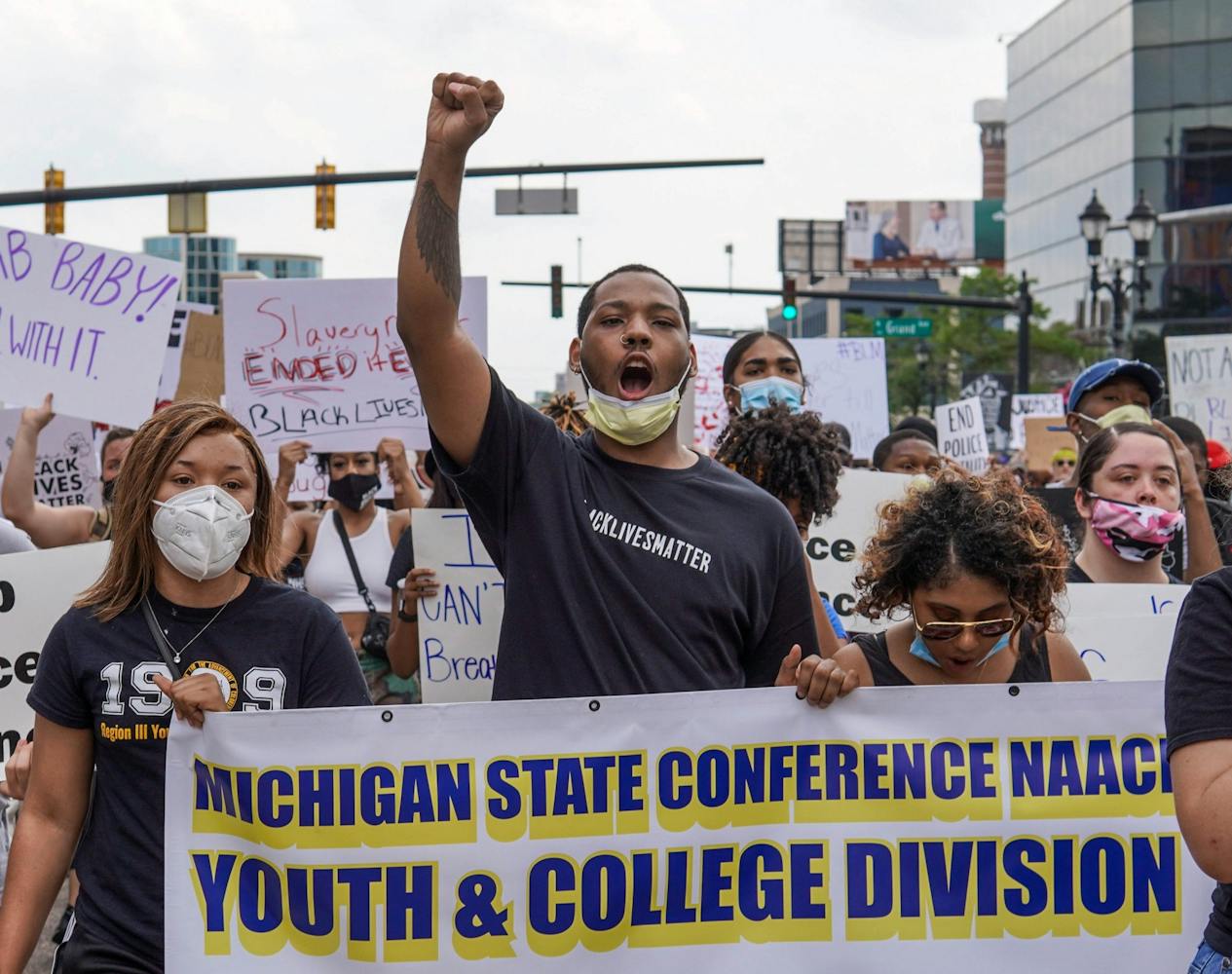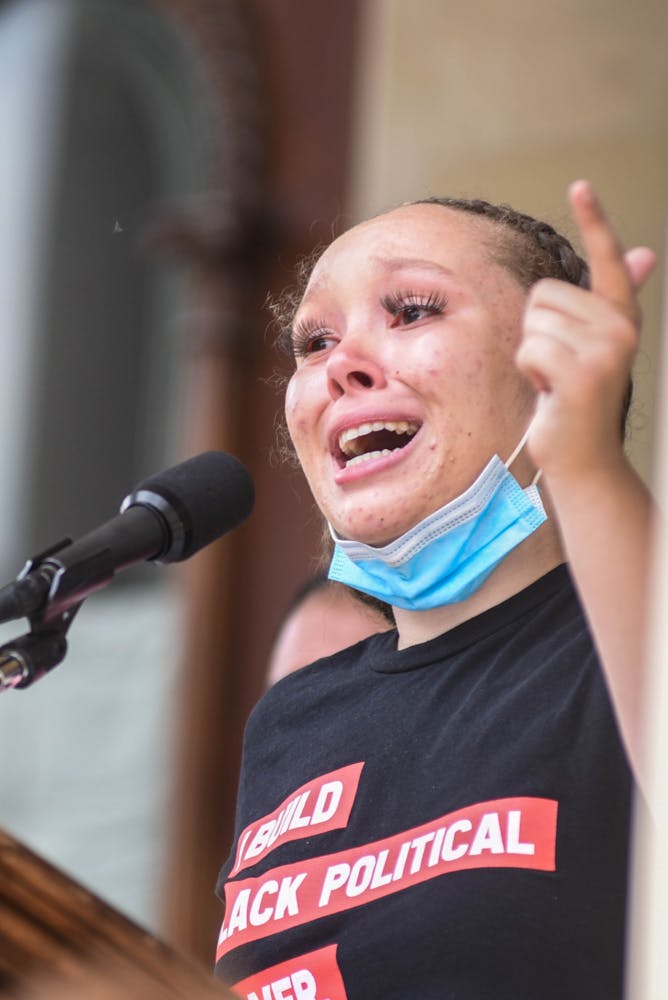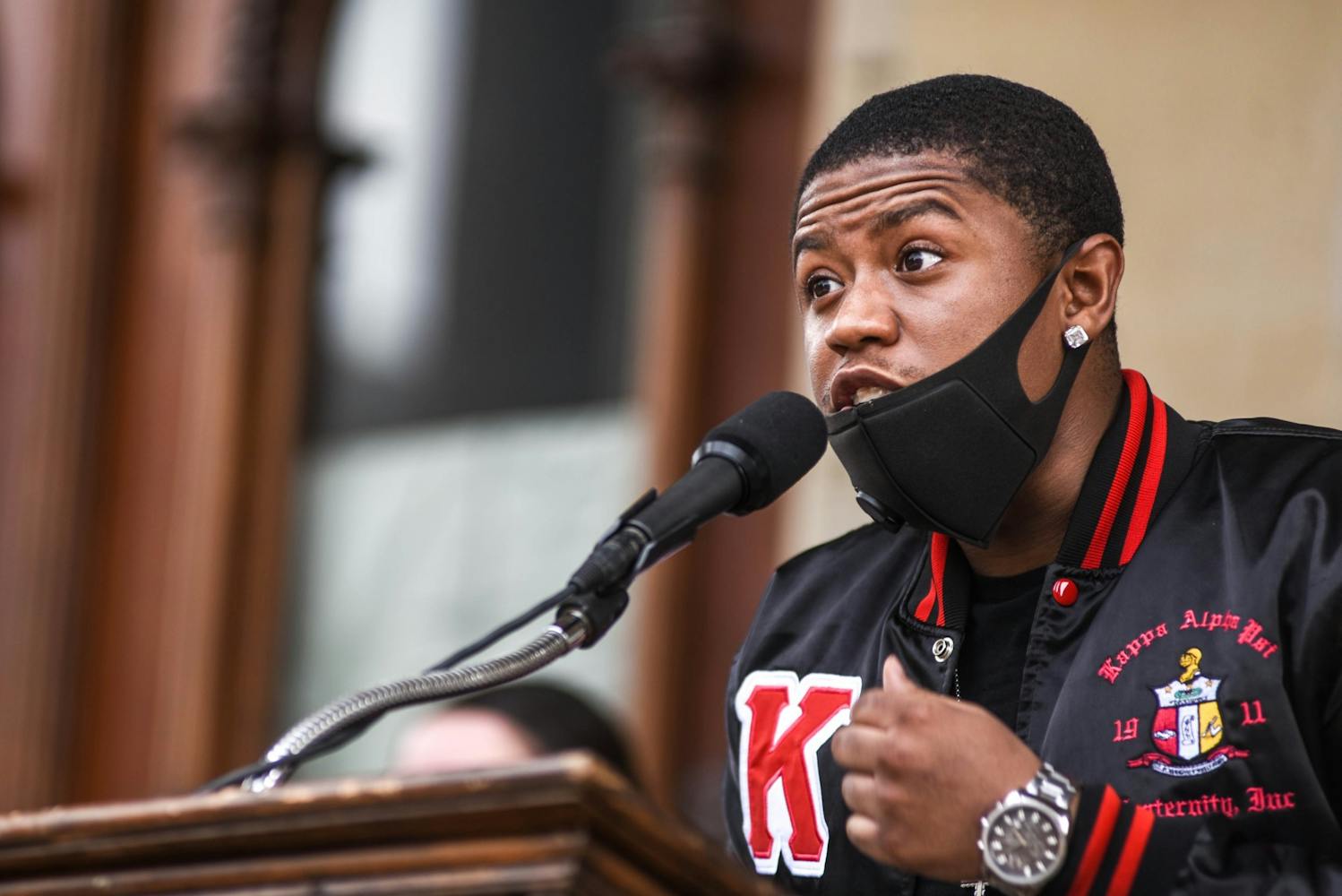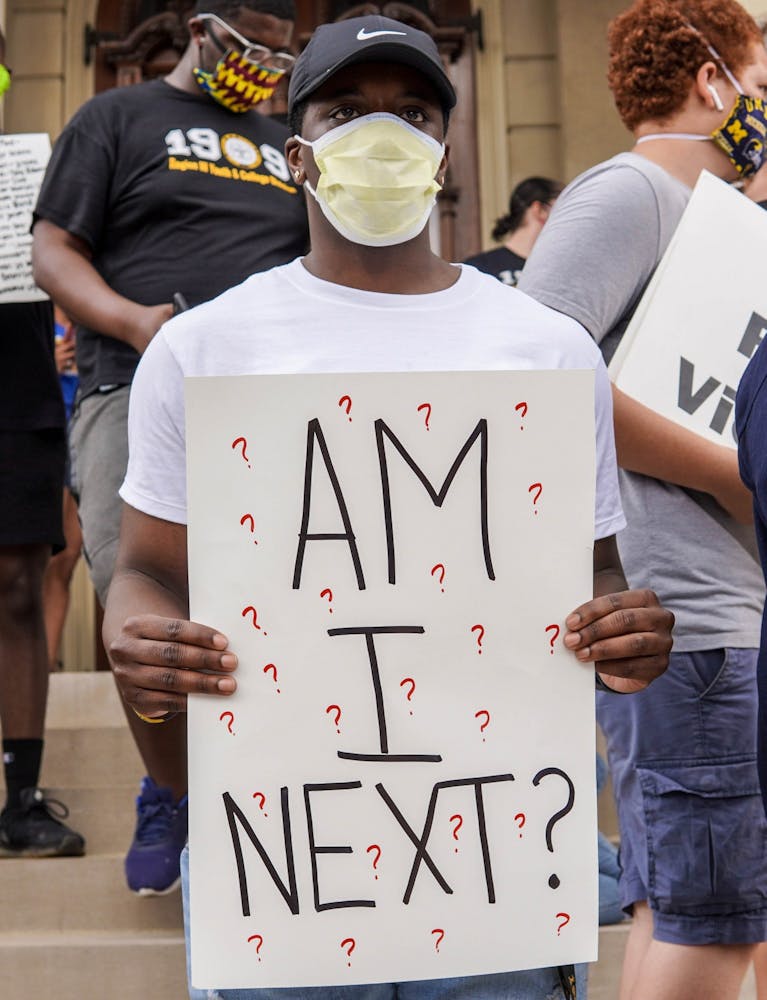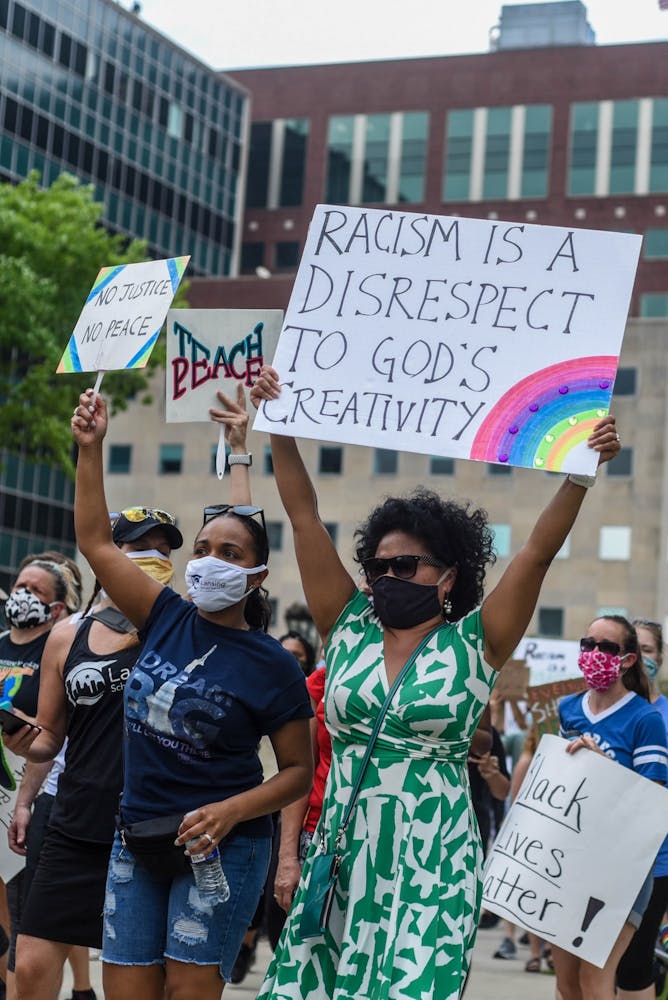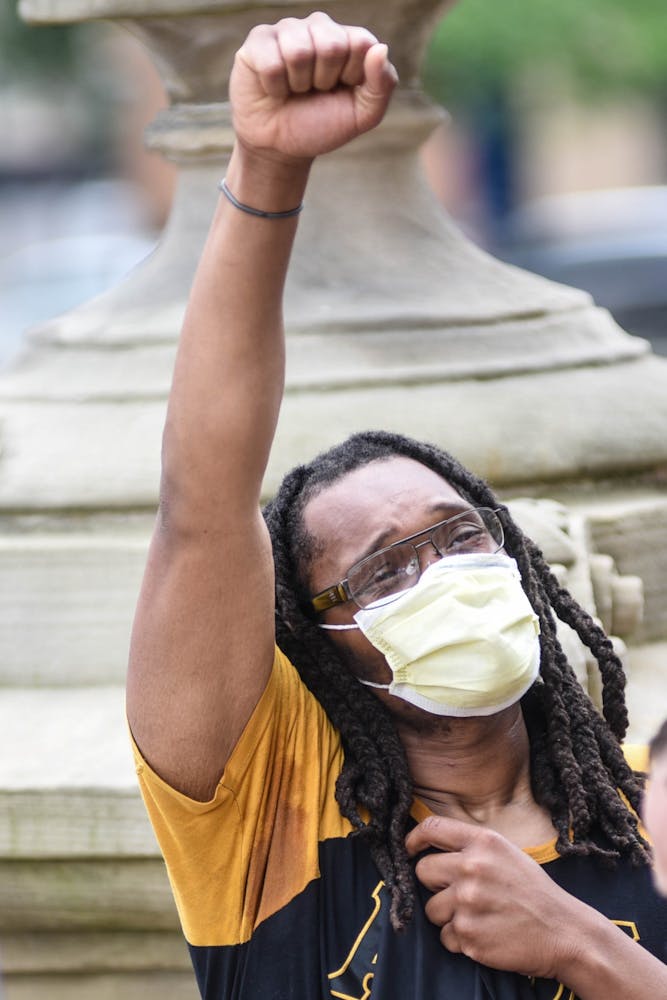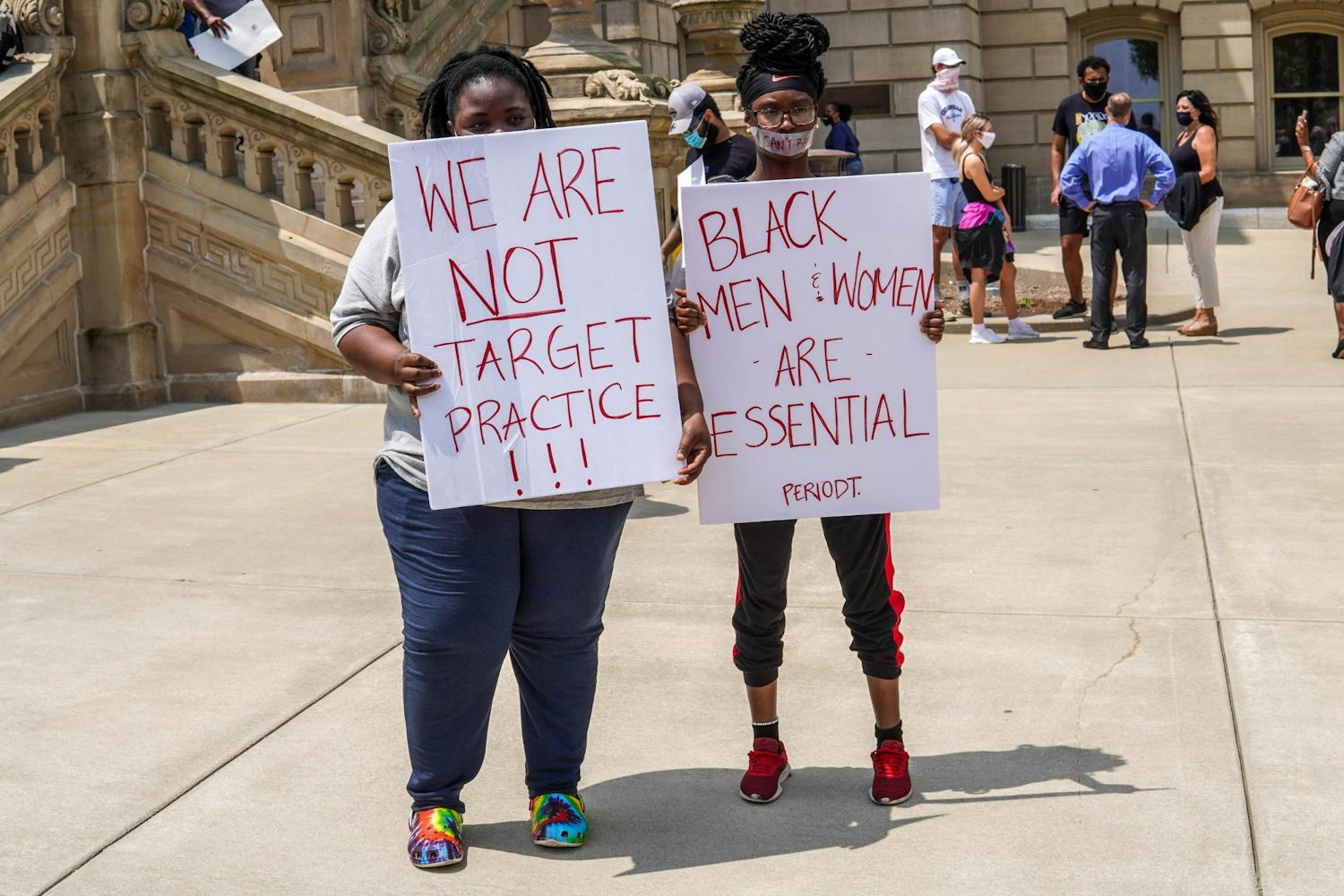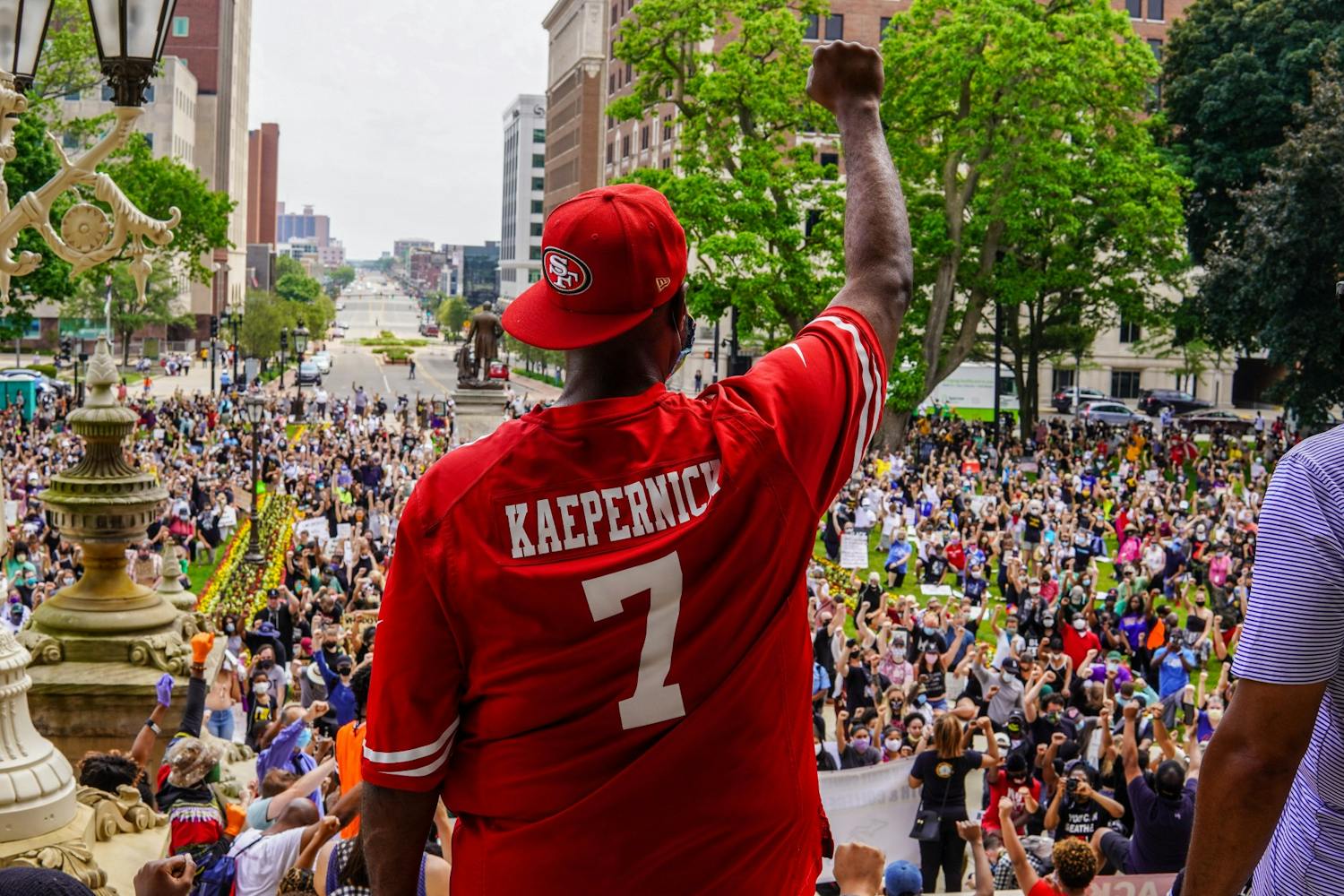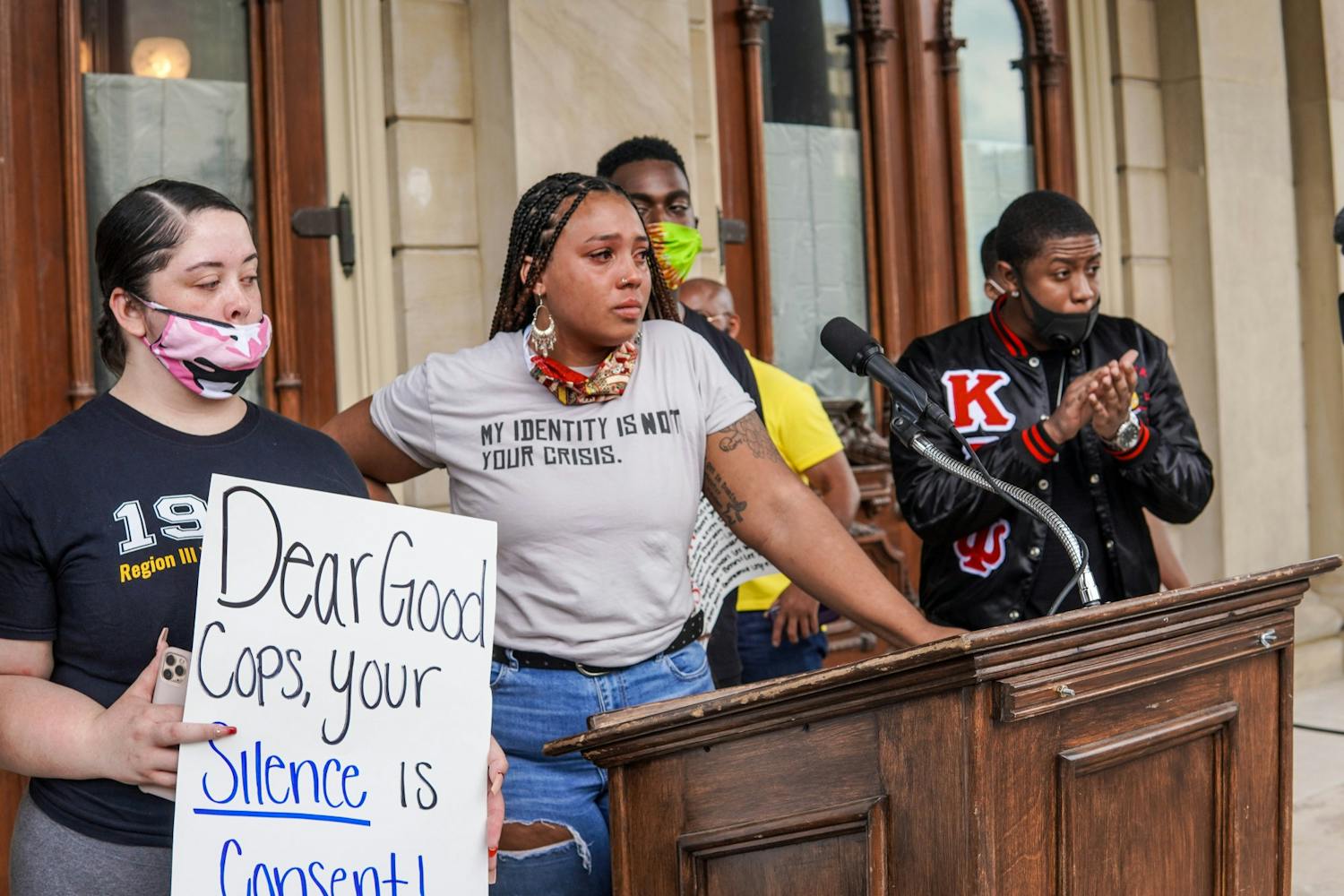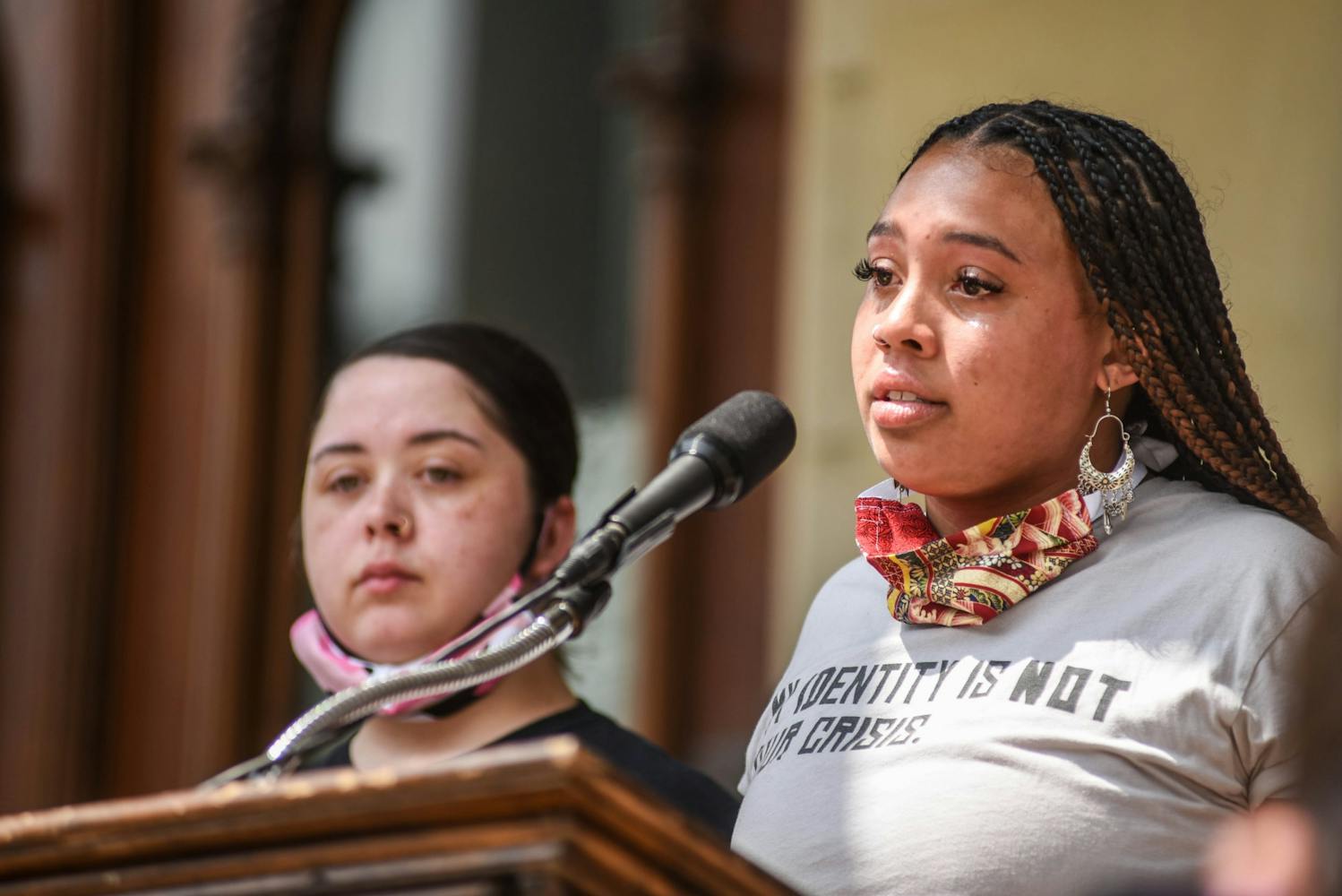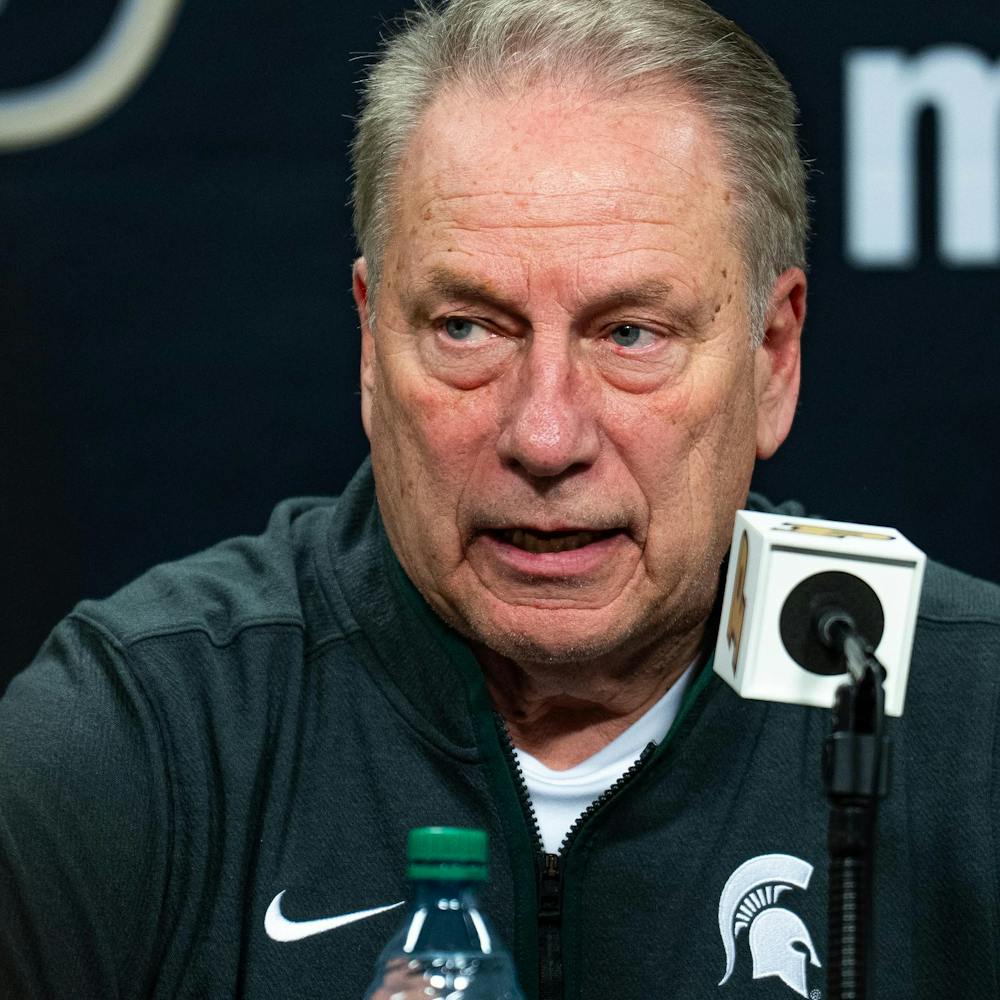Over 1,000 people stood in front of Mitchell, spread out on the Capitol lawn. As she tamed her hands and gathered her raw emotions, she realized that her hands weren’t shaking because of nerves; They were shaking because of how empowered she felt standing there. What the Michigan NAACP Youth and College Division was able to do was inspire people of all ages, identities, genders and backgrounds to join in support of their fight.
Andre Wilkes, an NAACP Youth and College Division member at Howard University spoke at the event. In his speech he said that inclusion should be intersectional and as he looked out at the crowd, it was the biggest he’d ever seen his message carried out to.
“It was the largest platform which I've seen all Black Lives Matter being called out for which acknowledged trans ... Black lives and Black women. And just every subcategory of Black,” Wilkes said.
For many, this was their first time out protesting, adding to the volume of protesters that were then surging throughout the country in light of the murders of both George Floyd and Breonna Taylor, but for the NAACP this was yet another chapter in their long fight for equality.
“... Prior to the protest, and then following the protests, we started a police brutality task force that focus on a lot of different things police brutality related that were happening throughout the state,” Mitchell said. “... So when those protests were happening, connecting people with lawyers, things like that, helping people craft their demands, ... but then also looking at legislation. So with those demands that we pushed for that day, trying to get in contact with different local officials and push those demands forward. And then with this election season also happening, I think it definitely gave us a bigger momentum to be able to push those because people were looking to get reelected, and by helping have our demands listed like, 'this is what we require for you to do for us in order for us to cast a vote for you.'”
As a nonpartisan organization, the NAACP isn’t affiliated with any political party, but one of their biggest messages during the protests and beyond was to vote. Putting an emphasis on voting and changes in legislation, they made the demands of marginalized communities the forefront of campaigns, instead of an afterthought.
Wilkes worked on voter outreach following the election and saw the impact it made, but knows that advocating for change can’t stop with the election.
“I think it gave candidates a scope of what is important to us and it ... became more than just a piece of their campaign to run on,” Wilkes said. “... I definitely think it'll allow people to start to recognize that we do need to go up on intentional change. ... Whether it be the election or a protest, those won't be the only thing that makes intentional change and the work doesn't end here.”
One day, Wilkes hopes to find his way into legislation, focusing on the local level as to not stray too far from his community. He has seen firsthand what small changes can build into and that is why he puts an emphasis on talking about problems within and directed towards the Black community. Like the butterfly effect, he believes making those changes as locally as possible can lead to greater change on a larger scale.
“It manifests itself in practical things, ... just mentioning these things in regular, regular conversations,” Wilkes said. “... So I will always emphasize holding your local officials as accountable as you do your national, because those are the ones who see those are the ones who are responsible for a lot of the things you may want to change in your everyday life.”
While work was being done prior to the protests and the election, the group took advantage of the moment as all the attention turned towards their movement and pushed forward for change. But just as the protests didn’t mark the start of their journey, they weren’t the end either. Now this group will turn their attention to keeping the momentum going, Mitchell said.
In the coming months, Mitchell wants to make education a top priority.
“Where a lot of our work will kind of lead us to in this next upcoming year, is that the things that we saw happening in a lot of educational standpoints from like student debt ... elimination and things like that, I think that'll be a very big push, especially because those are the campaign promises that were put out there by the winners for the presidential election,” Mitchell said.
“Civil rights encompass so many things, making sure that like education, environmental justice, things like that are incorporated in there. So I think I do see a lot of that being in our future, especially next year. I think we'll have a lot of momentum to be able to push a lot of that forward, but I definitely see education being one of the top priorities for next year.”
Australyah Coleman, Vice President of the Michigan NAACP Youth and College Division, also wants to put an emphasis on community involvement, continuing on with legislation and helping other conferences move forward as they are, so that they can continue to improve communities at a local level.
“... Making sure that our community involvement is up, because the situations that we're seeing in the news are happening in our community, maybe on a smaller scale, maybe it's not necessarily like a police shooting type situation, but we have situations where there's bad interactions with the police, or we're having bad interactions in general in communities,” Coleman said. “So I think one of our biggest thing is working on legislation that works with local police departments, so that we can work on the smaller areas and then branch out to work on the bigger areas. ... As the Michigan state Youth and College Division, we need to focus on Michigan and then branch out on a larger spectrum. So making sure that we're meeting the needs of our people, our community, that way maybe we can set an example for another state conference.”
For the NAACP, for this division of the younger generation, there is no stopping.
In Greek Mythology, there is a story told of a Titan, Atlas, who is condemned to hold the heavens forever. While these activists weren’t condemned, they inherited this generational struggle and as Atlas held up the world, they hold the weight of their ancestors, their family, their children and their children’s children. Coleman believes her fight is theirs and while activism can be tiring, she understands the future, and the hope for a better world is at stake.
Support student media!
Please consider donating to The State News and help fund the future of journalism.
“We have to keep pushing, and it gets tiring. And I, I don't like to say that we have to keep pushing, we have to keep working, because it makes it seem like a job, it makes it seem like something that we're going to get burnt out from and we are going to have people that are going to get burnt out, which is why we need to teach the youth generation like, as much as I don't want to look at my siblings and be like, 'you need to know that this is probably going to happen to you, so this is how you advocate against it. This is how you stick up for yourself.' That's things that we're going to have to instill into our children,” Coleman said. “So I don't think activism is ever going to come to an end because these little situations, microaggressions, macroaggressions, racism in general, ... as much as we hate to say it, I don't see it coming to an end, because there's just so much availability for individuals to feel the way that they feel, you know, there's ... a lot of hatred in the world. So it's hard for us to try to find an end goal.”
Though Coleman believes that activism won’t have the luxury of seeing an end, she emphasized positivity and knows that things can get better as long as they keep fighting.
“We can try as hard as we can, we can push legislation, you know, we can keep working, keep fighting the good fight,” Coleman said. “That's what we always say, keep fighting. Because that's all we can do. We can't stop. It's never a choice for us to just stop.”
While they push for change and to keep the momentum going, Wilkes knows that activism isn’t the end goal, because as long as there is a need for activism, the struggle still exists. So, as he looks towards the future, he hopes the work that is done now can allow his community to live without this burden.
“You don't want to idealize or glorify activism in itself, because it's a byproduct of struggle. So I would never want to aspire ... I don't want the end goal to be activism,” Wilkes said. “... I want the end goal to be what will come from the activism.”
The hope for what will come from activism lies within the youth and through this year, Coleman can already see that impact being made.
“They're starting to rise up, that the younger individuals in these communities are starting to use their voice, they're finding their footing, I think that society is starting to see that a little bit more even with our younger generations,” Coleman said.
“So I think that the protests, the movies, the documentaries, everything that's happened around these situations have made such a large impact on our youth. And I think that's my biggest thing was the impact that it made on the youth for them to carry out what they've learned, I think this has made a large impact. This has been, I don't want to say a learning lesson, because that's too small. But the history books often like to forget these details, or they might not add these protests into the history books, and these kids are living through it. And I think that that's going to be the biggest thing for us. They're going to be able to carry this on and remember.”
Discussion
Share and discuss “Michigan NAACP Youth and College Division reflect on 2020, how to keep momentum ” on social media.

